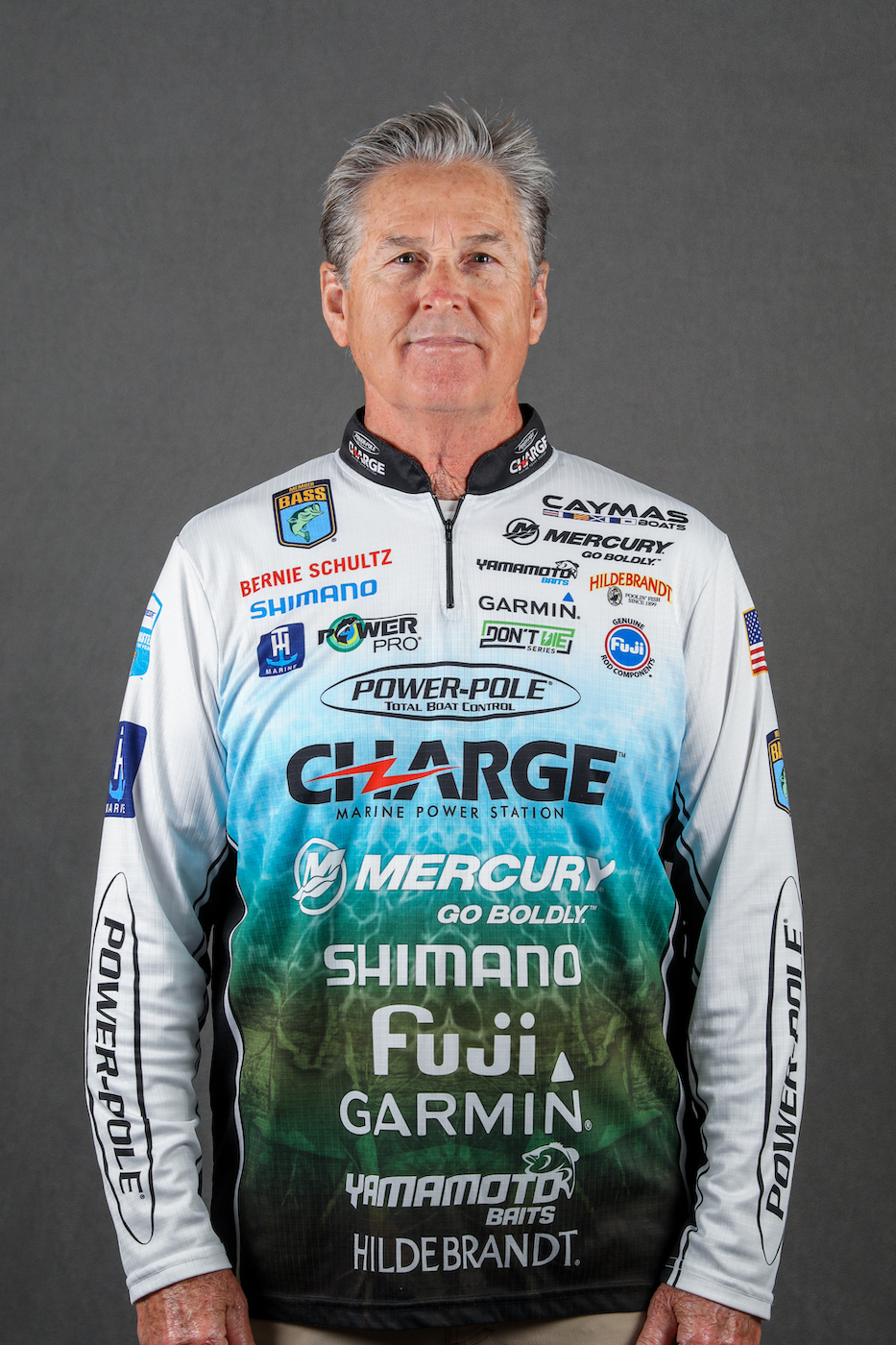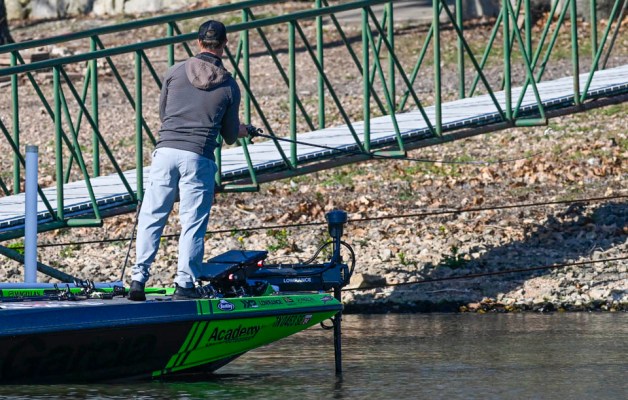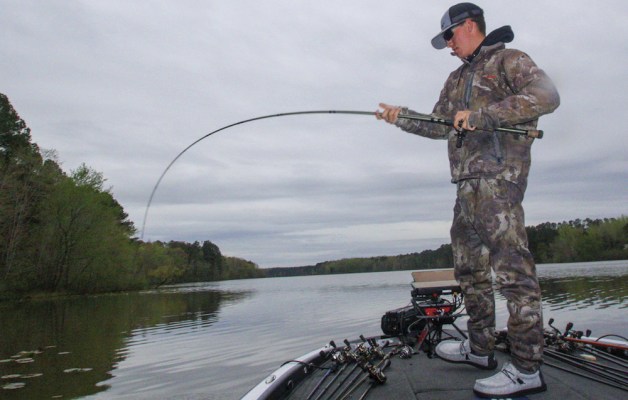Ever hear the expression “Bass are like people”? As strange as that may sound, there’s actually some truth to it … at least in my mind.
I sometimes use this line during seminars to explain how bass live and relate to things — like climate, habitat, feeding periods … even each other. And when you think about it, many of their habits are similar to ours; what one is doing, others are likely to be doing the same.
I’ll admit that I’m no biologist — not even close. But after years of being on the water, certain things become pretty obvious. And it’s the consistency of those observations that helped me realize the similarities in our habits.
As you read ahead, keep in mind that these are merely my own personal observations, not those of a qualified fisheries specialist, and they may or may not be shared by my fellow competitors.
That said, here are my thoughts on the subject.
Schoolers vs. Rogues
Like most people, bass follow a routine. Perhaps somewhat random and unpredictable, they still seem to function on a timetable of sorts — one that’s basically divided by active and inactive periods.

Regardless of the body of water, if given the opportunity, the greatest portion of any bass population will be doing much the same thing, on about the same schedule. When they’re active, most are active. When they’re inactive, most are inactive. Such as it is for humans — like when we sleep, most of us sleep at night. Or when it’s time to eat, most of us eat on about the same schedule. Sure, there are exceptions. But the consistencies easily outweigh them.
The same goes for bass. When the feed is on, most of the bass in a given body of water are chasing forage — whether schooling on shad or stalking bream in the shallows, they tend to feed at about the same time. Like at first light, or at dusk, or around thunderstorms — their biological clocks kick in, telling them it’s time.
Then there are those that I refer to as “rogues” — the ones who do things on their own timetable. These bass are more opportunistic, and aren’t concerned with what the rest of the population is up to. They pretty much keep to themselves, living out solitary, independent lives. (Remind you of any people you know?)
Interestingly, the bass that live these singular lifestyles are often the biggest fish in the lake. It’s true. Find a rogue bass and it could easily be one of trophy size. I can’t tell you how many times I’ve caught big bass from isolated cover — places that were unique to their surroundings and almost impossible to duplicate, such as an old fence post or some lonely laydown on an otherwise barren bank.
You’ll hear talented “junk” fishermen echo this, as they tend to target unique and varying cover forms. And they’re the ones who, quite often, catch the biggest bass. They do it time and time again, plucking better than average fish from overlooked, isolated places. They know rogue bass are dominant and territorial, and will lay claim to the best available cover. And by fooling enough of them into biting, they’ll put some serious weight in the boat.
Junk vs. Treasure
If given the opportunity, I’m sure most of us would like to find the mother lode — a spot where the bass are stacked like cordwood. Schooled up fish are often easier to catch. But in many cases, the best five won’t outweigh a limit brought in by a guy fishing isolated targets.
Take structure fishing versus flipping, for instance. An angler fishing an offshore ledge may get 30 bites and by day’s end, cull to a solid 15-pound limit — but then there’s the angler who flips random shoreline cover all day for just five bites, ending up with nearly 20 pounds. I don’t know about you, but I’ll go with the flipper’s math.

Of course, this scenario doesn’t always play out. But it happens more often than we might realize. That’s why guys like Denny Brauer and Tommy Biffle often excel on reservoirs. Even though they know the greatest number of fish may be offshore, they go with their strengths and fish shallow. And they have the discipline to fish for fewer bites, believing those bites will yield a better grade of fish.
Again, this strategy doesn’t always work. But when the tour visits structure lakes and 98 percent of the field is out probing offshore structure, you can bet those two guys will be covering miles of shoreline looking for a few good bites.
Keep in mind that it can also work in reverse — such as in the spring, when the greatest numbers of fish are on the bank. The guy who finds those few remaining bass that are still staging offshore could easily run away with the tournament simply because he has them to himself.
Bass are Bass
So are bass really like people? I think in some ways they are. After all, we’re all creatures of God merely trying to survive.
Considering their habits and how some choose to school together while others prefer more solitary lives, we as anglers must decide on which to pursue. Should we try the Brauer/Biffle approach and seek out those more elusive rogue bass or stay with the crowd and fish where the numbers are? That, my friends, is what makes angling such a unique and challenging sport — the fact that there are these and other options to consider and that any of them could hold the key to success.
Regardless of your preferred approach, try to keep an open mind. Bass, to some degree, share habits much like humans. And by learning those habits, we might put ourselves closer to the fish.
Find the fish and you’ll find success!
And you know, now that I think about it, Brauer and Biffle are just like the fish they hunt — both could be considered rogues.





